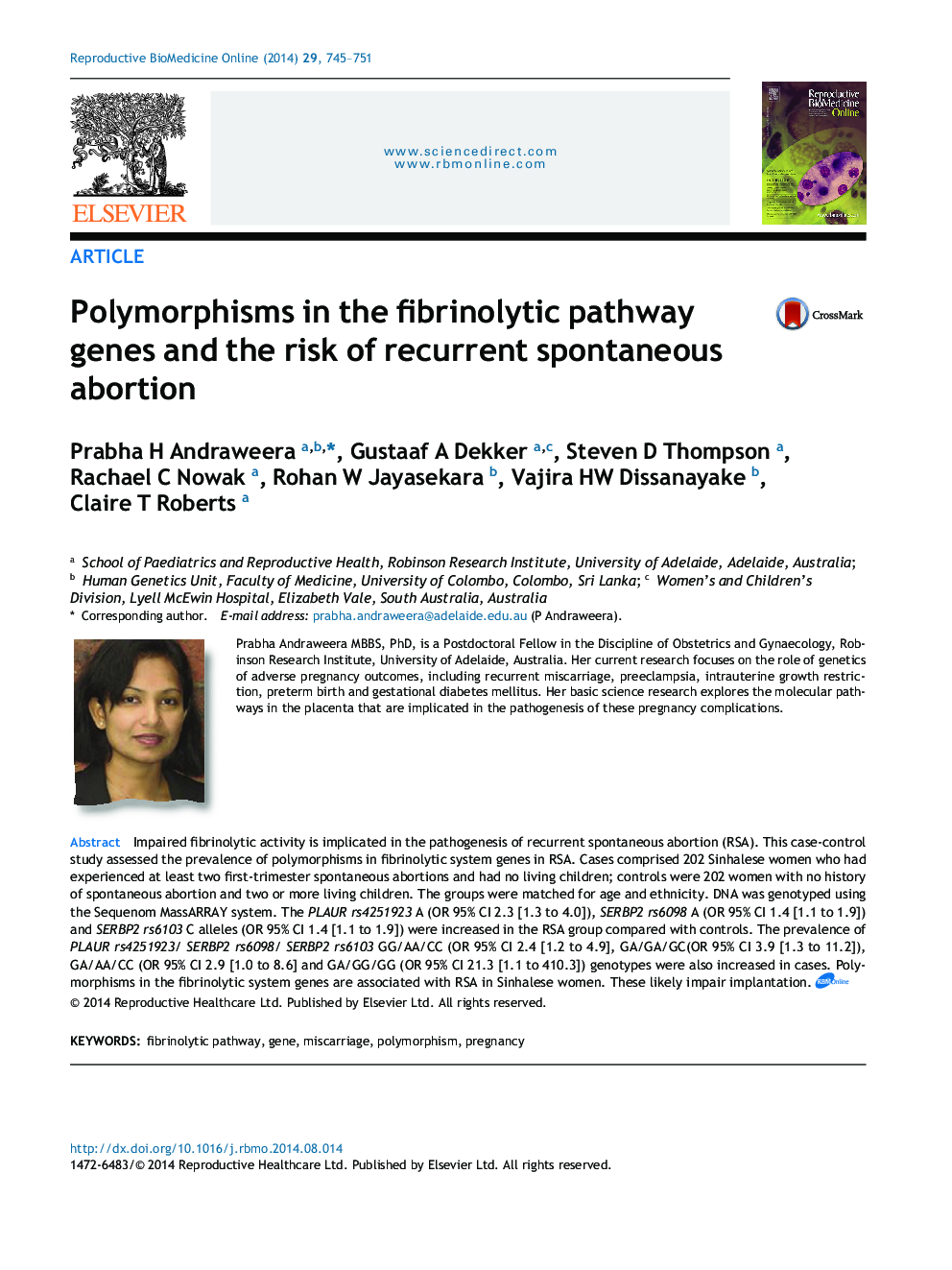| Article ID | Journal | Published Year | Pages | File Type |
|---|---|---|---|---|
| 6188967 | Reproductive BioMedicine Online | 2014 | 7 Pages |
•The PLAUR rs4251923 A allele, SERBP2 rs6098 A allele and SERBP2 rs6103 C allele were increased in women in the RSM group compared with controls.•The prevalence of PLAUR rs4251923/ SERBP2 rs6098/ SERBP2 rs6103 GG/AA/CC, GA/GA/GC, GA/AA/CC and GA/GG/GG genotype combinations were also increased in the RSM group compared with the control group.•Polymorphisms in the fibrinolytic system genes are associated with RSM in Sinhalese women. These likely impair implantation.
Impaired fibrinolytic activity is implicated in the pathogenesis of recurrent spontaneous abortion (RSA). This case-control study assessed the prevalence of polymorphisms in fibrinolytic system genes in RSA. Cases comprised 202 Sinhalese women who had experienced at least two first-trimester spontaneous abortions and had no living children; controls were 202 women with no history of spontaneous abortion and two or more living children. The groups were matched for age and ethnicity. DNA was genotyped using the Sequenom MassARRAY system. The PLAUR rs4251923 A (OR 95% CI 2.3 [1.3 to 4.0]), SERBP2 rs6098 A (OR 95% CI 1.4 [1.1 to 1.9]) and SERBP2 rs6103 C alleles (OR 95% CI 1.4 [1.1 to 1.9]) were increased in the RSA group compared with controls. The prevalence of PLAUR rs4251923/ SERBP2 rs6098/ SERBP2 rs6103 GG/AA/CC (OR 95% CI 2.4 [1.2 to 4.9], GA/GA/GC(OR 95% CI 3.9 [1.3 to 11.2]), GA/AA/CC (OR 95% CI 2.9 [1.0 to 8.6] and GA/GG/GG (OR 95% CI 21.3 [1.1 to 410.3]) genotypes were also increased in cases. Polymorphisms in the fibrinolytic system genes are associated with RSA in Sinhalese women. These likely impair implantation.
